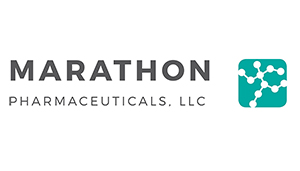 After winning FDA approval for its muscular dystrophy drug last week, Marathon Pharmaceuticals set the drug’s list price at $89,000 a year – 50 to 70 times greater than what most U.S. patients have paid for decades by importing the drug from Europe.
After winning FDA approval for its muscular dystrophy drug last week, Marathon Pharmaceuticals set the drug’s list price at $89,000 a year – 50 to 70 times greater than what most U.S. patients have paid for decades by importing the drug from Europe.
Marathon’s drug is a corticosteroid, deflazacort, that has been shown to improve muscular strength in patients with a rare type of muscular dystrophy. The drug wasn’t previously sold in the U.S. because companies did not see it as profitable enough to warrant pursuing regulatory approval.
Chief financial officer Babar Ghias asserted that the company showed restraint when pricing the drug. “It’s modestly priced for an orphan drug,” he said, according to The Wall Street Journal.
He also said that most patients will have access to the drug because their health insurers will cover the cost. But some patient advocate groups have serious reservations about the company’s pricing strategy.
Christine McSherry, who runs a nonprofit aimed at Duchenne muscular dystrophy, told the Journal that she pays $1,600 a year to buy deflazacort from a U.K. pharmacy for her son, Jett. But the pharmacy recently told customers that in compliance with FDA regulations, the company is ending shipments to the U.S. since Marathon won FDA approval for its version.
Although she has health insurance, McSherry told the news outlet that she isn’t sure if her insurer will pay for the new drug.
McSherry said she is “disappointed that Marathon increased my cost for the drug by more than $87,000 a year.”
The company will begin selling the medicine under the brand name Emflaza in March this year. Ghias said Marathon does not have commitments from insurers yet that they will pay for the drug.
Pharmaceutical companies, which have faced growing political pressure to explain their products’ list prices, sometimes claim that the price-tags justify the investments they make in R&D.
Marathon licensed the rights to clinical trial data from the 1990s for deflazacort and the FDA required the company to finish an analysis of the old trial data to gain approval. In an interview, Ghias did not disclose how much Marathon spent to acquire the trial data or conduct new research.
He said Marathon does not anticipate to make its investment back for years.

